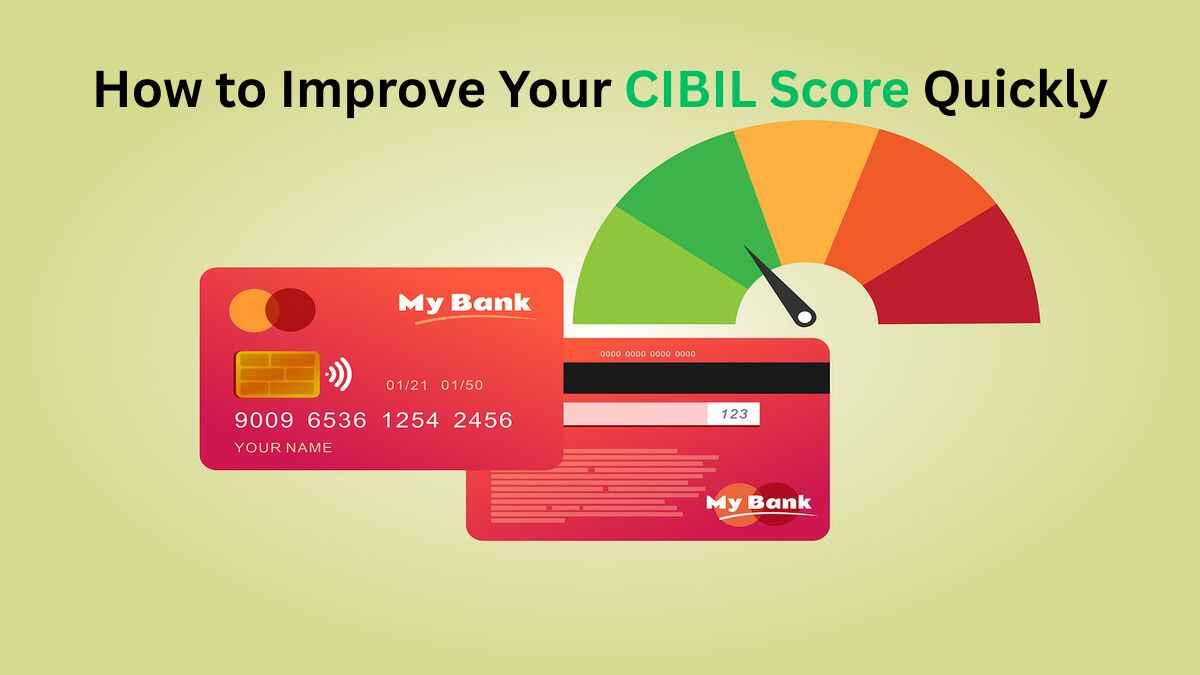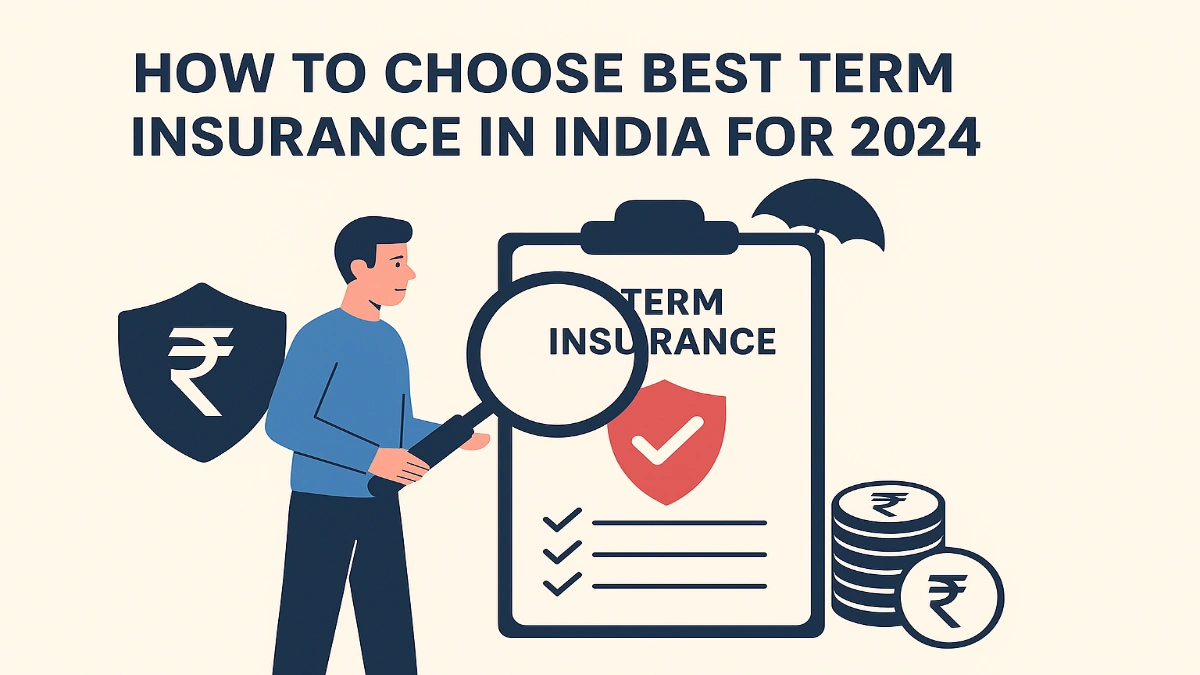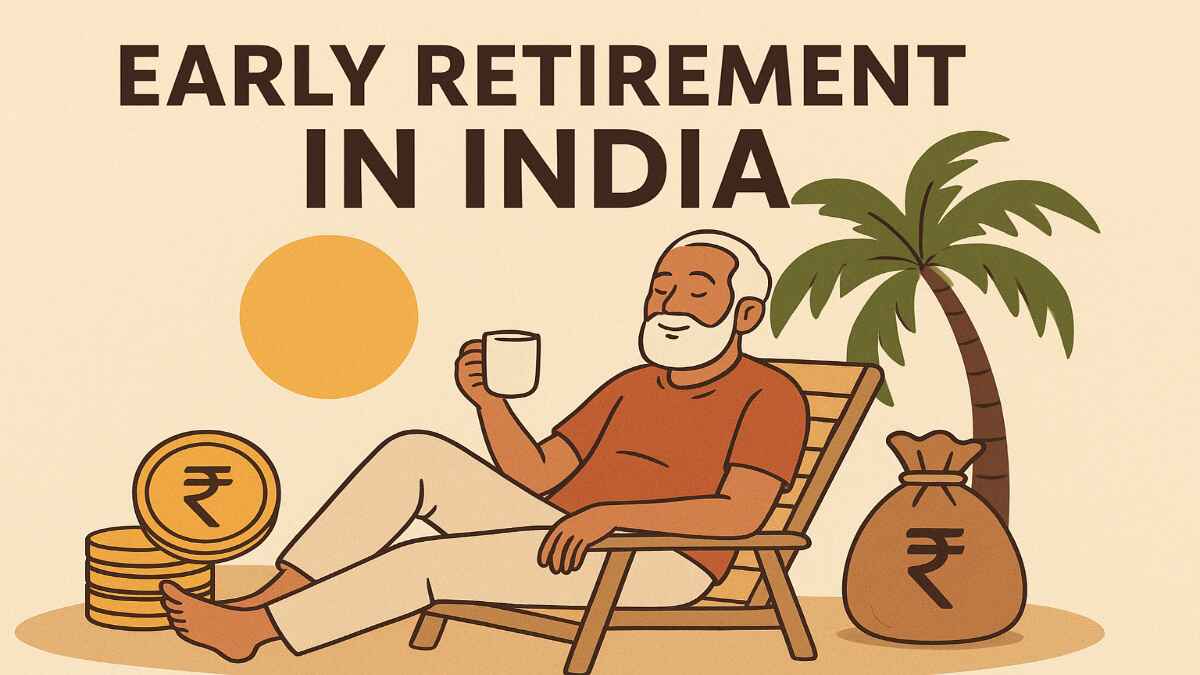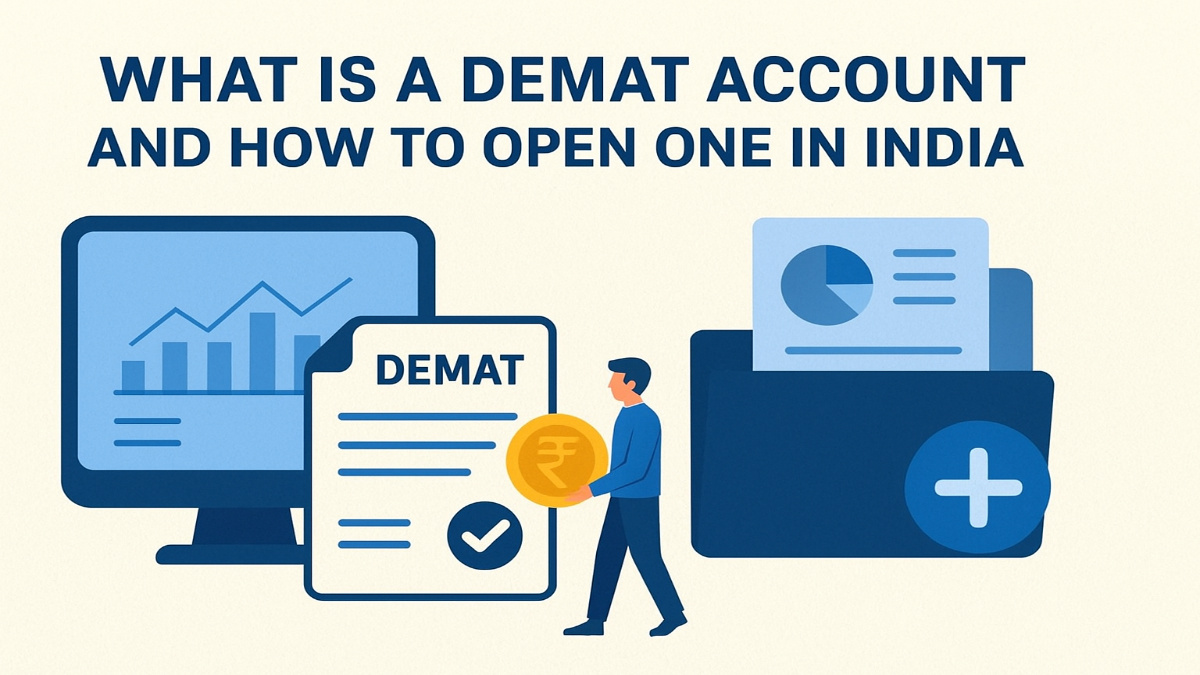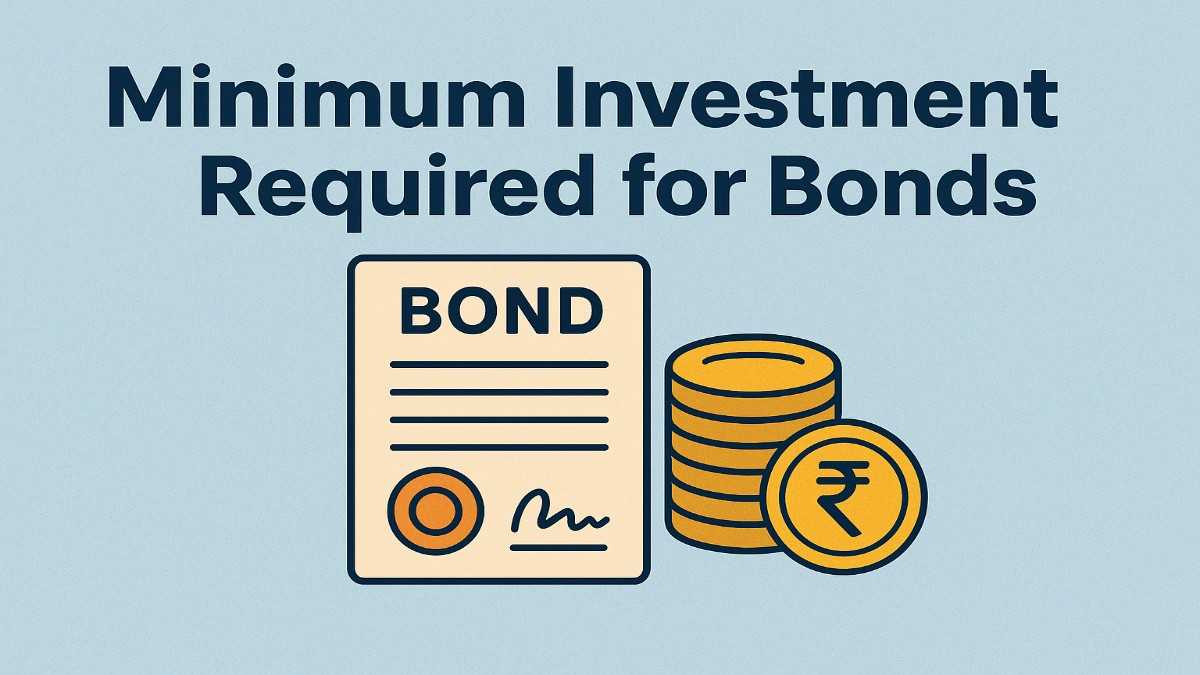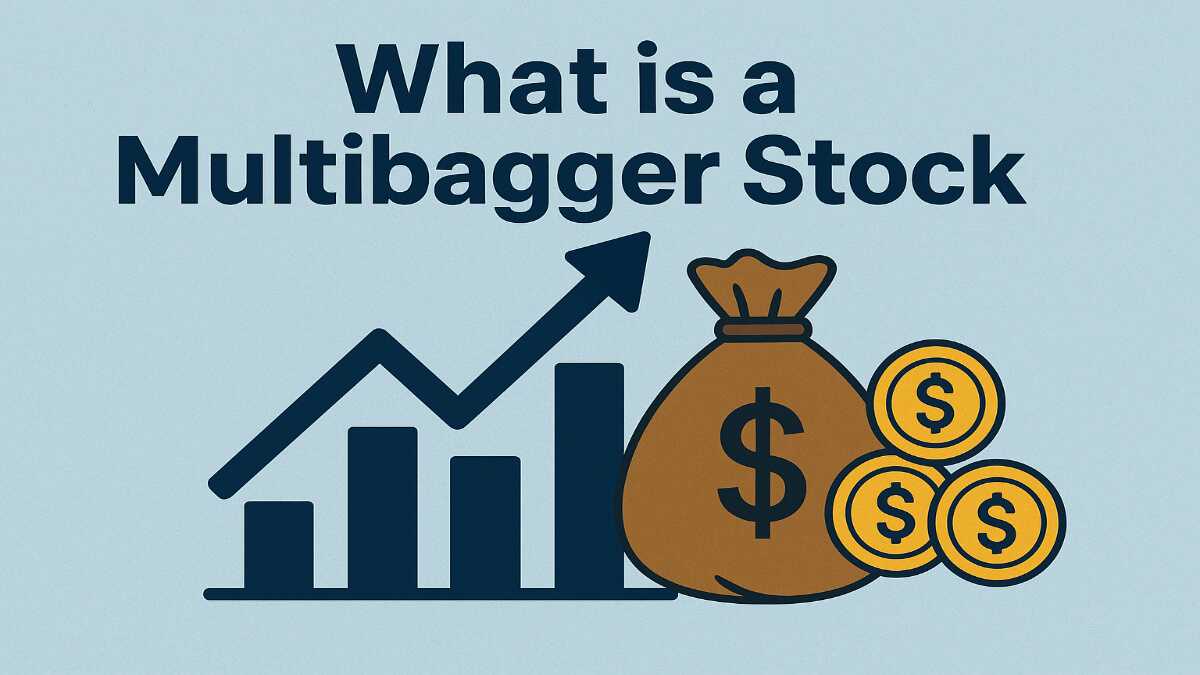Your CIBIL score is like a financial report card that tells banks and lenders how reliable you are when it comes to borrowing and repaying money. In India, this three-digit number, ranging from 300 to 900, plays a critical role in determining whether you get approved for loans, credit cards, or even a home mortgage—and at what interest rate. A good CIBIL score (typically 750 or above) can unlock better financial opportunities, while a low score can make things challenging. If you’re wondering how to improve your CIBIL score quickly,
Table of Contents
What is a CIBIL Score?
The CIBIL score, provided by the Credit Information Bureau India Limited (CIBIL), is a numerical summary of your credit history. It reflects how well you’ve managed your loans, credit cards, and other financial obligations. A score closer to 900 indicates excellent creditworthiness, while a score closer to 300 suggests room for improvement.
Why is a Good CIBIL Score Important?
A high CIBIL score offers several benefits:
- Easier loan approvals: Banks and non-banking financial companies (NBFCs) are more likely to approve your applications.
- Lower interest rates: A good score can help you secure loans at competitive rates, saving you money.
- Higher credit limits: Lenders may offer higher credit card limits or larger loan amounts.
- Better financial opportunities: From home loans to car loans, a strong score improves your negotiating power.
On the flip side, a low CIBIL score can lead to loan rejections, higher interest rates, or limited access to credit, making it harder to achieve your financial goals.
Understanding Your CIBIL Score
Before diving into how to improve your CIBIL score quickly, let’s break down what affects it and how you can check it.
Factors That Affect Your CIBIL Score
Your CIBIL score is calculated based on five key factors:
| Factor | Weightage | Description |
|---|---|---|
| Payment History | 35% | Tracks whether you pay your EMIs and credit card bills on time. Late payments or defaults hurt your score. |
| Credit Utilization | 30% | Measures how much of your available credit you’re using. A high ratio (above 30%) can lower your score. |
| Length of Credit History | 15% | Considers how long you’ve been using credit. Longer histories are better. |
| Types of Credit Used | 10% | Looks at the mix of secured (e.g., home loans) and unsecured (e.g., credit cards) credit. A diverse mix helps. |
| New Credit Inquiries | 10% | Tracks how often you apply for new credit. Too many inquiries can signal financial distress. |
How to Check Your CIBIL Score
You can check your CIBIL score through several platforms:
- Official CIBIL Website: Visit www.cibil.com to access your credit report and score. You’re entitled to one free report per year.
- Bank Portals: Many banks, such as HDFC Bank, ICICI Bank, or Bajaj Finance, offer free CIBIL score checks through their websites or apps.
- Credit Card Issuers: Some issuers, like Axis Bank or SBI, provide access to your score as part of their services.
Regularly checking your score helps you stay informed about your credit health and spot any issues early.
17 Proven Ways to Improve Your CIBIL Score Quickly
Improving your CIBIL score quickly requires a combination of discipline and smart financial habits. Below are 17 actionable strategies to help you boost your score effectively:
1. Pay Your Bills on Time
Your payment history is the most significant factor affecting your CIBIL score, accounting for 35% of it. Missing even a single EMI or credit card payment can lower your score and stay on your report for up to 7 years.
- How to do it:
- Set up reminders or enable auto-debit for EMIs and credit card payments.
- If you’re struggling to pay, contact your lender to discuss options like EMI restructuring.
- Pay at least the minimum amount due on credit cards to avoid penalties.
- Example: If you have a ₹10,000 credit card bill due on the 5th of each month, set a calendar reminder for the 3rd and ensure funds are available in your account.
2. Reduce Your Credit Utilization
Credit utilization, which accounts for 30% of your score, is the ratio of your credit card balance to your credit limit. Keeping this ratio below 30% shows lenders you’re not overly reliant on credit.
- How to do it:
- If your credit limit is ₹1,00,000, keep your balance below ₹30,000.
- Pay off your credit card balance in full each month.
- Request a credit limit increase to lower your utilization ratio.
- Example: If you have two credit cards with limits of ₹50,000 each and a total balance of ₹60,000, your utilization is 60%. Paying down ₹30,000 will bring it to 30%, improving your score.
3. Check and Correct Your Credit Report
Errors in your credit report, such as incorrect payment records or unauthorized inquiries, can unfairly lower your score.
- How to do it:
- Get your free annual credit report from www.cibil.com.
- Review it for inaccuracies, such as wrong personal details or accounts you didn’t open.
- Dispute errors online with CIBIL, providing supporting documents like bank statements.
- Example: If your report shows a late payment you never missed, file a dispute with proof of payment to have it corrected.
4. Avoid Multiple Loan Applications
Applying for multiple loans or credit cards in a short period results in hard inquiries, which can temporarily lower your score.
- How to do it:
- Only apply for credit when necessary.
- If shopping for a loan, complete applications within a 14-45 day window, as multiple inquiries for the same credit type may be treated as one.
- Example: If you’re looking for a car loan, apply to 2-3 lenders within a month rather than spreading applications over several months.
5. Settle Outstanding Debts
High outstanding balances increase your credit utilization and signal financial strain.
- How to do it:
- Prioritize paying off high-interest debts, like credit card balances.
- Consider debt consolidation to combine multiple loans into one with a lower interest rate.
- Use windfalls, like bonuses or tax refunds, to clear debts.
- Example: If you owe ₹50,000 on a credit card with 36% interest, paying it off can significantly boost your score.
6. Use Credit Wisely
Responsible credit use demonstrates your ability to manage finances effectively.
- How to do it:
- Make small purchases on your credit card and pay them off in full each month.
- Avoid maxing out your credit cards.
- Keep old accounts active with occasional small transactions.
- Example: Use your credit card for monthly utility bills and pay the full amount before the due date.
7. Maintain a Long Credit History
The length of your credit history, which accounts for 15% of your score, shows lenders your experience with credit.
- How to do it:
- Don’t close old credit accounts, even if unused.
- Keep your oldest credit card active with small, regular purchases.
- Example: If you have a credit card you’ve used for 10 years, keep it open to maintain a long credit history.
8. Avoid Being a Guarantor
Being a guarantor for someone else’s loan can hurt your score if they default.
- How to do it:
- Only agree to be a guarantor if you trust the borrower’s repayment ability.
- Understand that you may be liable for the debt if the borrower fails to pay.
- Example: If a friend asks you to be a guarantor for their personal loan, ensure they have a stable income before agreeing.
9. Clear All Existing Debt
Paying off all debts can improve your credit utilization and overall score.
- How to do it:
- Start with small debts to build momentum.
- Use extra income, like a festival bonus, to pay down larger debts.
- Example: Clearing a ₹20,000 personal loan can reduce your credit utilization and show lenders you’re financially responsible.
10. Borrow a Mix of Credit
Having a mix of secured (e.g., home loans) and unsecured (e.g., credit cards) credit can positively impact your score.
- How to do it:
- Maintain a balance of credit types, such as a credit card and a car loan.
- Repay all credit types on time.
- Example: If you have a credit card, consider adding a small personal loan and repaying it diligently.
11. Limit Credit Utilization
Reiterating the importance of low credit utilization, aim to keep it below 30%.
- How to do it:
- Monitor your credit card balances regularly.
- Pay down balances before they get too high.
- Example: If your credit limit is ₹2,00,000, ensure your balance stays below ₹60,000.
12. Report Discrepancies
Promptly reporting discrepancies in your credit report can lead to quick score improvements.
- How to do it:
- Contact CIBIL via their website to dispute errors.
- Provide documentation, such as payment receipts, to support your claim.
- Example: If your report lists an unpaid loan you’ve already cleared, submit proof to have it corrected.
13. Make Corrections to Errors
After disputing errors, ensure they are resolved.
- How to do it:
- Follow up with CIBIL to confirm corrections.
- Keep records of all communications.
- Example: If an error isn’t corrected within 30 days, escalate the issue with additional evidence.
14. Avoid Re-applying After Rejection
If your loan or credit card application is rejected, don’t apply elsewhere immediately.
- How to do it:
- Check your credit report to understand the rejection reason.
- Work on improving your score before reapplying.
- Example: If rejected for a home loan, wait 3-6 months while improving your score through timely payments.
15. Minimize Borrowing
Excessive borrowing can make you appear risky to lenders.
- How to do it:
- Only borrow what you need.
- Opt for longer loan tenures to reduce monthly EMIs.
- Example: Instead of taking a ₹5,00,000 personal loan, assess if ₹3,00,000 is sufficient.
16. Diversify Credit Types
A diverse credit portfolio shows you can handle various credit products.
- How to do it:
- Maintain a mix of credit cards, personal loans, and secured loans like home or auto loans.
- Example: If you only have a credit card, consider a small secured loan, like a two-wheeler loan, and repay it on time.
17. Watch Joint Applicants
Joint accounts can affect your score if payments are missed.
- How to do it:
- Ensure your co-borrower is financially responsible.
- Monitor joint account payments closely.
- Example: If you co-sign a loan with a family member, set reminders to ensure timely EMIs.
Additional Tips to Boost Your CIBIL Score
Here are some extra strategies to complement the main steps:
- Monitor Your Credit Report Regularly: Check your report every 6 months to stay informed about your credit health.
- Set Up Automatic Payments: Use auto-debit to ensure you never miss a payment.
- Keep Old Accounts Open: Closing old accounts can shorten your credit history, lowering your score.
- Avoid Closing Old Credit Cards: Even unused cards with high limits can help maintain low credit utilization.
- Be Cautious with Credit Card Usage: Stick to small, manageable purchases you can pay off quickly.
How Long Does It Take to Improve Your CIBIL Score?
The time required to improve your CIBIL score depends on your starting point and the actions you take:
| Starting Score | Improvement Timeframe | Key Actions |
|---|---|---|
| Below 600 | 6-12 months | Clear debts, pay on time, correct errors |
| 600-700 | 3-6 months | Reduce utilization, avoid new inquiries |
| Above 700 | 1-3 months | Maintain good habits, monitor report |
- Minor improvements: Paying off small debts or correcting errors can boost your score by 50-100 points in 30-60 days.
- Significant improvements: Moving from a low score (e.g., 600) to a good score (e.g., 750) may take 6-12 months with consistent effort.
- Major issues: Defaults or write-offs can take 2-3 years to recover from fully, as they remain on your report for 7 years.
FAQs
What is the fastest way to improve my CIBIL score?
Paying bills on time, reducing credit utilization below 30%, and correcting credit report errors are the quickest ways to see improvements.
Can I improve my CIBIL score in 30 days?
Yes, minor improvements are possible in 30 days by paying off small debts, ensuring timely payments, and disputing errors. Significant changes may take longer.
Does checking my CIBIL score lower it?
No, checking your own score is a soft inquiry and doesn’t affect your score. Hard inquiries, made by lenders, can cause a temporary dip.
How often should I check my CIBIL score?
Check your score every 6 months or before applying for major credit, like a home loan, to ensure it’s accurate.
Will settling a loan improve my CIBIL score?
Settling a loan for less than the full amount can harm your score, as it’s recorded as a partial repayment. Paying the full amount is better.
Can I remove negative items from my credit report?
Legitimate negative items, like late payments, stay for 7 years but lose impact over time. Errors can be disputed and removed.
Does having multiple credit cards affect my CIBIL score?
Multiple cards can help if managed well (low utilization, timely payments) but hurt if you miss payments or max out limits.
Is a mix of secured and unsecured loans better?
Yes, a diverse credit mix can show you can handle different credit types, positively impacting your score.
How does credit utilization affect my score?
High utilization (above 30%) suggests over-reliance on credit, lowering your score. Keep it low for a positive impact.
What should I do if my loan application is rejected?
Don’t reapply immediately. Review your credit report, address issues like late payments or high utilization, and reapply after 3-6 months.
Conclusion
Improving your CIBIL score quickly is within your reach if you adopt disciplined financial habits. By prioritizing timely payments, keeping credit utilization low, and regularly monitoring your credit report, you can boost your score and unlock better financial opportunities. Whether you’re aiming for a home loan, a new credit card, or simply better financial health, the strategies outlined in this guide can help you achieve your goals.
Start today by checking your CIBIL score, identifying areas for improvement, and taking action. With consistent effort, you’ll see your score rise, paving the way for a brighter financial future.
Disclaimer: Moneyjack.in provides general financial information for educational purposes only. We are not financial advisors. Content is not personalized advice. Consult a qualified professional before making financial decisions. We are not liable for any losses or damages arising from the use of our content. Always conduct your own research.

